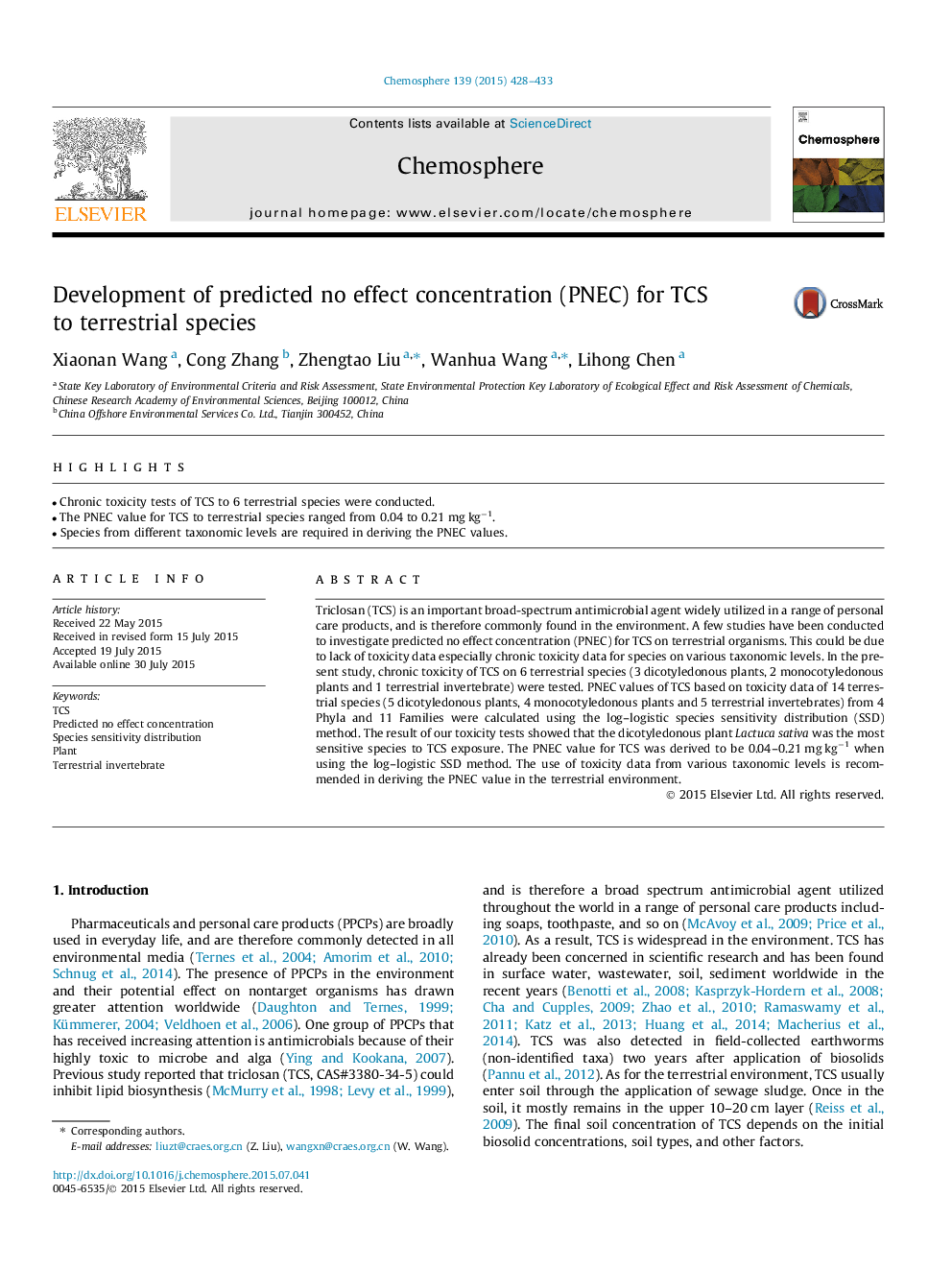| Article ID | Journal | Published Year | Pages | File Type |
|---|---|---|---|---|
| 4408176 | Chemosphere | 2015 | 6 Pages |
•Chronic toxicity tests of TCS to 6 terrestrial species were conducted.•The PNEC value for TCS to terrestrial species ranged from 0.04 to 0.21 mg kg−1.•Species from different taxonomic levels are required in deriving the PNEC values.
Triclosan (TCS) is an important broad-spectrum antimicrobial agent widely utilized in a range of personal care products, and is therefore commonly found in the environment. A few studies have been conducted to investigate predicted no effect concentration (PNEC) for TCS on terrestrial organisms. This could be due to lack of toxicity data especially chronic toxicity data for species on various taxonomic levels. In the present study, chronic toxicity of TCS on 6 terrestrial species (3 dicotyledonous plants, 2 monocotyledonous plants and 1 terrestrial invertebrate) were tested. PNEC values of TCS based on toxicity data of 14 terrestrial species (5 dicotyledonous plants, 4 monocotyledonous plants and 5 terrestrial invertebrates) from 4 Phyla and 11 Families were calculated using the log–logistic species sensitivity distribution (SSD) method. The result of our toxicity tests showed that the dicotyledonous plant Lactuca sativa was the most sensitive species to TCS exposure. The PNEC value for TCS was derived to be 0.04–0.21 mg kg−1 when using the log–logistic SSD method. The use of toxicity data from various taxonomic levels is recommended in deriving the PNEC value in the terrestrial environment.
